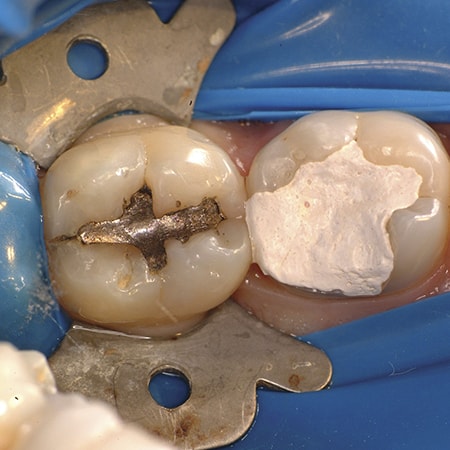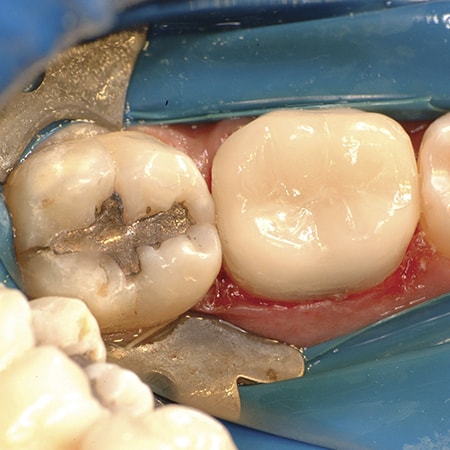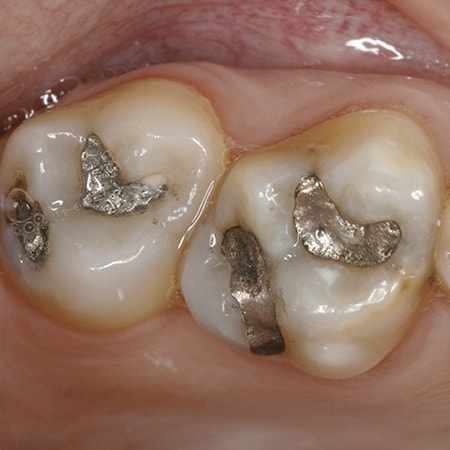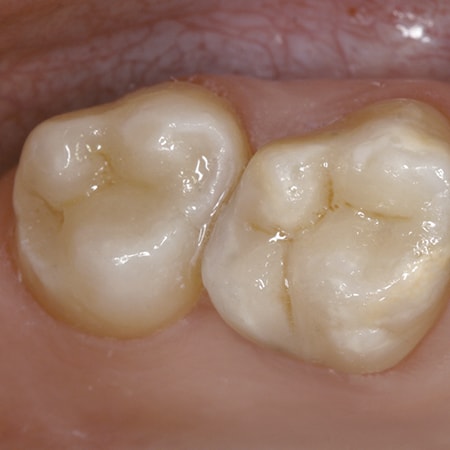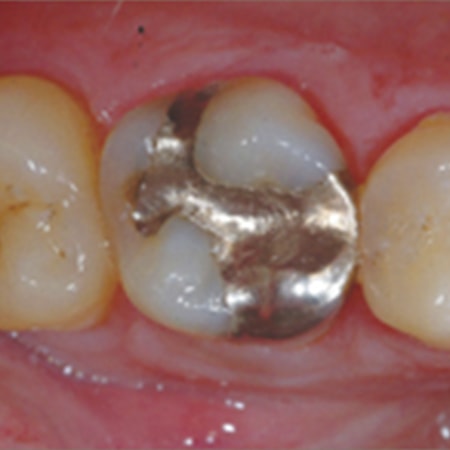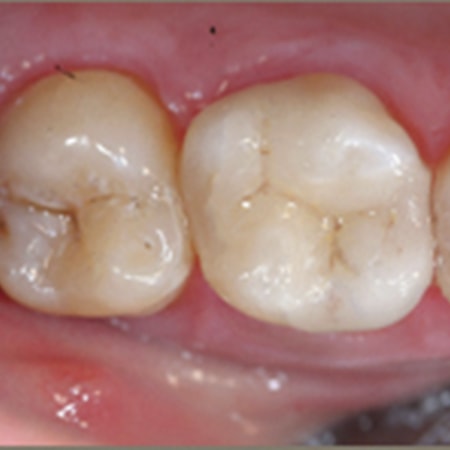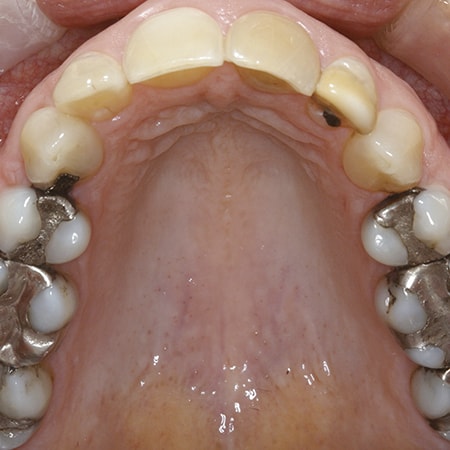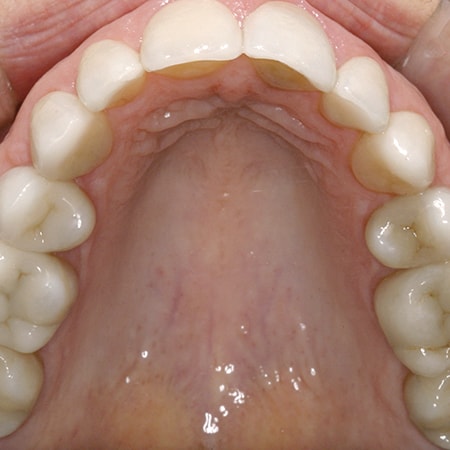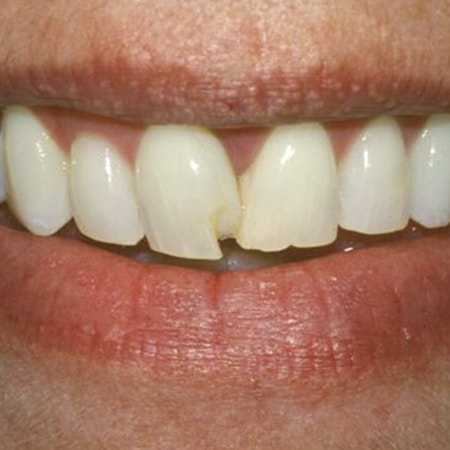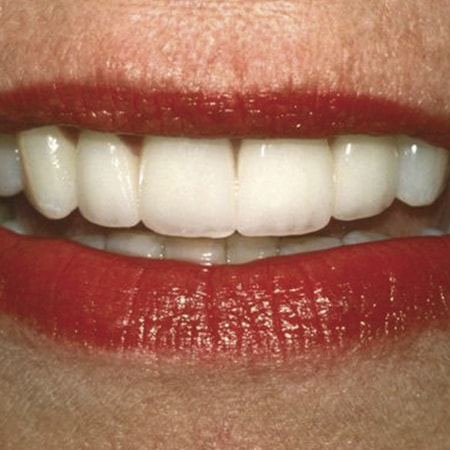Loss of a tooth can be an overwhelming and devastating process. Besides the concerns of how your smile will be effected cosmetically by a missing tooth, or multiple teeth, there is also risk posed to the function and health of not only the rest of your mouth, but the entire body as well. Fortunately, we live in an age where dental implants are an option for replacing a missing tooth or teeth.
At Williams-Dental, we are able to offer a full range of state of the art implant services, including implant placement. Dr. Erika Williams is on staff and a member of the implant teaching faculty at Christiana Care/Wilmington Hospital’s Residency Clinic
What is a dental implant?
A dental implant is a titanium post surgically placed in the jawbone to mimic a natural tooth root. The surgical grade titanium found in dental implants is the same as that used in other surgical procedures in the body, such as total joint replacement. This titanium post fuses with the surrounding natural bone of the jaw in a process called osseointegration. This allows for a sturdy foundation for a replacement tooth. Implants can be used to replace a single tooth, or multiple missing teeth with either a bridge or denture supported by implants.
Who is a candidate for implants?
Most people who have lost or are missing teeth can receive dental implants. If you can’t wear conventional dentures or find them difficult to keep in your mouth, or if you just don’t want to sacrifice healthy existing tooth structure to support a bridge, you may be an excellent candidate for implants. Implant placement does require minor surgery, so patients must be in good general health to receive them.
Adequate bone structure and healthy gum tissues are essential to success of implant therapy. However, if either of these are lacking, we may be able to perform procedures to gain bone and tissue. Patients who have chronic health conditions, like uncontrolled diabetes, those who take immune modifying drugs- such as bisphosphonates (Boniva, Prolia etc) for osteoporosis, or who have cancer may have trouble with healing and thus success of implants may be in question.
Patients who smoke or drink alcohol in excess, or are heavy bruxers may also have decreased success of implant therapy. We will take into consideration all factors of your medical and dental history to decide whether implants are a good treatment option for you.
Why should I replace any missing teeth?
Having a missing tooth or teeth can certainly effect your smile and self-esteem. Many people who lose teeth report depression and a negative impact on their quality of life. Moreover, there are also devestating physical effects to the mouth and body that can result from tooth loss. Once a tooth, or teeth, are lost the surrounding teeth start to shift and drift into the missing tooth spaces, putting additional pressure on the remaining teeth which can lead to bite changes, jaw problems, and additional tooth fracture and loss. It’s like a domino effect. Additionally, the bone that surrounds the teeth starts to atrophy, which can lead to collapse of facial features over time, also effecting your looks and self esteem. If a tooth or teeth are not replaced in a timely fashion, further bone loss can occur, possibly precluding that individual from having implants in the future.
Food consumption may also be effected by tooth loss. When food cannot be chewed properly, people tend to rely on a softer diet full of processed food that is poor in nutrition which can in turn lead to more serious oral and systemic health problems and disease.
How long does implant process take?
While each patient’s needs and treatment plan may vary, in general, implant therapy may take several months. The implant surgery/placement may take an hour or two. Once the implant is placed, it requires a 4-6 month healing period. After the implant has integrated, the restorative process of putting a tooth on the implant, can take 2-3 visits over several weeks. In some instances, we can make you a temporary tooth replacement to function cosmetically as well as allowing you to eat and speak normally until the permanent restoration can be placed.
How do I care for implants?
The success or failure of implants depends on a number of factors, including the patient’s oral and overall health. Poor oral hygiene can be a significant cause of implant failure. Therefore, it is extremely important to protect your investment in dental implants, as well as the rest of your teeth, by practicing excellent oral hygiene at home- brushing and flossing, and use of aids such as a Water Pik. Regular visits in the dental office are also keys, and more frequent professional cleanings may be necessary.
Implants are too expensive! I don’t think I can afford them
Most people would be surprised at just how affordable implant therapy can be. It also could be more cost effective in the long term, taking into account costs of having to replace other types of restorations over and over again. Implant therapy may be more expensive in short term compared with other therapy options
We have many payment options and solutions to help you afford the treatment you want and need.
Look at dental treatment as an investment in YOU and your quality of life.
At Williams Dental, we believe in utilizing the latest technology to ensure that implants are placed in the best position in the jaw to support the tooth restoration. One way we accomplish this is by having our implant patients seen for a 3 D scan, called a CBCT, which allows us to plan the implant placement in 3 Dimension with respect to sinuses, nerves and other teeth. In using this technology, we can ensure the best possible outcome for your particular treatment.
Read Dental Implant Factsheet













